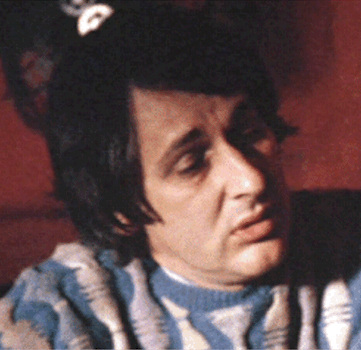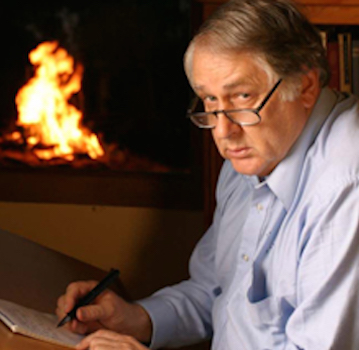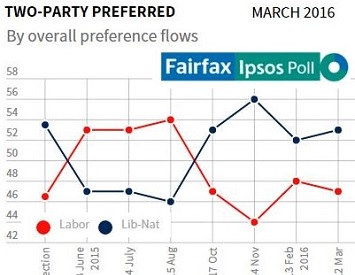On the night of 24 July supporters of Craig Thomson gathered in Sydney to raise funds for his legal defence. Bob Ellis was the keynote speaker.
COMRADES.
The Hansard Monologues – playing up the road – shows us the enormity of the forty-third parliament. The most significant, and successful, and nation-changing, since the second Chifley Government, and parliament, of 1946 to 49; and it is not over yet.
I have tried in my writing – and I am not just a humourist but an historian – to deal with this in several ways.
There was rhymed verse. There were anguished, farcical Canberra diaries, tracking hour by hour the various aborted Rudd mutinies and Gillard cat-fights with the lesser gender. There was a famous false friendship with Tony Abbott, which some thought homoerotic — but I knew better. And there was, as well, a rediscovery of the deductive art of Sherlock Holmes, and a way of writing about our troubled times in the Conan Doyle style short stories that some found amusing and indeed informative.
One concerned Craig, and was perhaps a little coarse for present company (available on the blog if you care to look it up). But another, concerning Peter Slipper, is fit, I think, to be here performed, in two of the party-trick voices I still have at my command, and … it goes like this.
[He reads out 'Holmes and The Difficult Case of Ashby’s Arse', printed first on his blog on 23 December last year.]
It is easy to laugh, but when one considers how vile a thing was done to a man who spent perhaps a thousand dollars illegally crossing the ACT border to buy fine wine in Queanbeyan — and nothing more — for which he lost his career, his ambition, his title, and his good name, one gets a sense of the wickedness — and the word is not overstated — of Pyne and Abbott and Ashby and Brough in the targeted killing of a man who used a word well known to us in a private communication to a friend; and which of us has not?
It is, I believe, construable as treason — conspiring in wartime to overthrow the second highest official in the land, the penalty for which is death by firing squad or hanging. I oppose both those penalties, but I note the crime.
In Craig’s case, it is a libel by a series of politicians and journalists, and the world’s worst snoop, Kate McClymont, that could – if he were enthusiastic in his pursuit of them – accrue him ten or twenty million dollars. Because they said, unfairly and wrongly, that he stole half a million dollars and spent them unsuitably on choc-tops and cab rides and cigarettes and the rent of movies of the sort I see every year at the film festival, and do not much enjoy. And as well, of course that of which we should not speak, of which of course he is innocent, and framed, by political enemies of a not uncommon sort, which you will find in most unions and most houses of parliament of the past and the present, in the thousand years of democracy thus far on this planet, since Greenland first had its bright idea.
What is unusual is that never before in these thousand years has a duly elected politician been threatened by the loss of his vote, and his constituency’s vote, not because of a conviction, or malfeasance, or a misdemeanour, or a parking offence, but because, not of a crime, and a sentence for that crime, but of a rumour of how some money was spent, legally, on an activity of which most men, at some point — me certainly — have been guilty.
What Abbott and Pyne did, in their jack-rabbit scuttle from democracy and the reasons they gave for it was like, for instance, Craig Thomson, the Member for Dobell, getting up and saying, under privilege, of the Member for Warringah:
This man, Madam Speaker, should not be allowed to vote in this House, and I will tell you why.
When he was nineteen, a fair while back now, he thought he had knocked up his girlfriend, and proposed to marry her. The church was booked, and the guests invited, and a week before the ceremony, he had second thoughts. He thought he should not marry her.
And he did not go and tell her so. He did not ring her up and tell her so. He did not, initially, write to her. He got his mother to ring her up and tell her so. The wedding, the baby, were on the back-burner. Her surname would not change.
The church service was cancelled, her life ruined. She had the baby, a boy, and on her former fiance’s insistence, he was drop-kicked out of their lives, exported, banished, outsourced, to Perth, and she did not see this briefly beloved baby again for twenty-six years.
And when she was dying, and slowly dying, two years ago this month, he, the Member for Warringah, did not visit her, did not write her a letter, this innocent woman, whose life he had wrecked or at least distorted, who had a later baby and raised it alone, in a time when no Catholic woman did that, he did not make a phone call, and he did not, or has not so far, visited her grave.
Can you accept, Madam Speaker, the vote of this man? Can anyone in this House do that?
Well, I can. He has been elected by his constituents, and he has committed no illegality for which he might be expelled from the service and proceedings of this democratic chamber, because democracy trumps all, and no one may deny it to any citizen, however vile his deeds, if his voters choose him, and send him here, to speak for them, and serve them.
I said at the time that Craig’s speech was his Mr Smith Goes To Washington moment and certainly the most persuasive plea for natural justice ever put before the Australian people since the broadcast judgment of Justice Barrett exculpating Lindy Chamberlain. I saw a man who could not be lying, whose clarity and plainness of utterance left no other alternative conclusion than that he was got at somehow, in the past, and was being misjudged now. He became a cause of one, for me, long before I knew him, and he still is.
A passing thought.
It is likely, I think, though not certain, that an October 19 election, after two months of no boats coming, will win Labor twenty more seats and begin what Brutus called a "tide in the affairs of men" that washes the Liberal Party – and the LNP – and its hydrophobic Morrisons, Cormanns, Bernardis, Campbell Newmans, Mirabellas and Bronwyn Bishops out of the pages and footnotes and fish wrappings of international history, and their villainous methods and stern punishments into the legal textbooks of many nations.
But it would be a pity if Craig, one of their more buoyant, long suffering innocent victims, were to become a footnote also, not a minister, or a Deputy Prime Minister, in a future Cabinet of decent, progressive, honourable souls.
I believe that if it is to be October 19, or September 21 or 28, there will be time, indeed there will be time, after his exculpation by an honest magistrate, for him to recoup, with your goodwill and energetic doorknocking, sufficient of the truant Labor vote to put him, with Green preferences, ahead of the field, and back where he deserves, in his parliamentary seat, as representative, duly elected, of his good people in one of the loveliest patches of earth and water, in this occasionally fair and comradely country.
It is not too much, I think, for our audacity of hope, for our great hearted response to a good man ill-used by malicious enemies, in a time of trial in which many, because of Abbott and Pyne, and Bernardi and Cormann, and Kathy Jackson and Laurie Oakes and Kate McClymont (who in another millennium sought with termagant vigour to ruin my life too), have wearied of a country some of us, on occasions, in the midnight hours, would like to be shot of.
It is possible that the boats will not come, and the Liberals, in a fratricidal shambles, gift us with another chance to implement the good, and make sure Gonski (Better Schools plan) and NDIS (DisabilityCare Australia) and broadband (NBN) get through, and the soul of our people be patched together into a similitude of neighbourly, comradely goodness again.
And it is possible it will not be so.
But what is certain, I think, is the hearts in this room are large with optimistic possibility, and we all of us in the next few weeks will have a red-hot go at returning Craig in Dobell, and see, after that, how far the nation goes, in a time of crushing uncertainty, in its quest for the good and the fair, and the light on the hill at the end of the tunnel, ever nearing, ever beckoning, as we raise our glasses to a good and decent, unflinching, high-spirited, never downcast man, Craig Thomson.
For more information, or to contribute to the Craig Thomson Legal Defence Fund click here. Read more about Independent Australia's Ashbygate and Jacksonville investigations.
This work is licensed under a Creative Commons Attribution-NonCommercial-NoDerivs 3.0 Australia License









